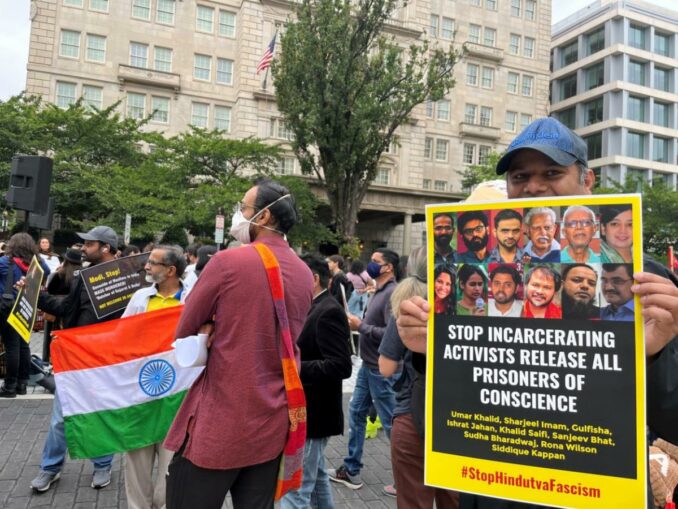Inconvenient truths confront Biden
 For years the U.S. media has repeated unfounded claims that China was suppressing the majority Muslim population in their Xinjiang province. The New York Times, BBC and other major corporate media repeated these lies to justify right-wing politicians seeking to restrict trade with factories in the region, due to their purported concern over China’s alleged mistreatment of Muslims.
For years the U.S. media has repeated unfounded claims that China was suppressing the majority Muslim population in their Xinjiang province. The New York Times, BBC and other major corporate media repeated these lies to justify right-wing politicians seeking to restrict trade with factories in the region, due to their purported concern over China’s alleged mistreatment of Muslims.
Alleged repression and even genocide against Muslims in this Chinese province became the source of claims of human rights abuses by China. Only there was never any real proof to back up these stories, and as recent visits to China by Workers World members found — they were fabricated lies. (workers.org/2023/06/71505/)
That no governments of Muslim countries ever made similar claims about Xinjiang was ignored by Western media, hardly surprising considering the U.S. has its own long and bloody history of invading and occupying predominantly Muslim countries, as well as its support for Israel’s occupation of predominantly Muslim Palestinian lands.
But geopolitics and global economics have a tricky way of working their way back to impact foreign policy decisions. Eager to maneuver India away from its alliance with Russia and China, the Biden administration welcomed Indian Prime Minister Modi to a state dinner at the White House June 22. This, despite Modi’s long and bloody history of repression against India’s Muslim communities and journalists.
It was obviously of little concern to Biden that Modi is closely linked to fascistic Hindu-supremacist groups that violently oppress Muslim minorities. Also overlooked was Modi’s longtime membership in the fascistic RSS paramilitary movement, whose early leaders praised Adolf Hitler, seeking to model their religiously pure “Hindustan” state on the Third Reich.

Hundreds of Indian Americans and their allies held a protest rally at Black Lives Matter Plaza in Washington, DC, against Indian Prime Minister Narendra Modi’s June 23.
During the state visit, Biden and Modi released a joint statement declaring the U.S. and India as “among the closest partners in the world.” The two also signed “deals on defense and commerce aimed at countering China’s global influence.” (Reuters, June 22) However, neither Russia nor China were mentioned by name.
The red-carpet treatment was an obvious attempt to drive a wedge between India and its partners in the financial/trade alliance BRICS, which includes Brazil, Russia, India, China and South Africa. Growing increasingly concerned about developments like BRICS, which threaten the U.S. dollar hegemony, Biden’s meeting with Modi was clearly an effort to sabotage the alliance.
Just how successful Biden was is questionable. While agreeing to buy U.S. weapons, Modi refused to criticize Russia or China, refused to go along with sanctions on China and Russia and refused to back away from BRICS. Without a more public offering from Modi, Biden seems to have come away from the table with mere crumbs, plus egg on his face. All the attention given Modi did not sit well with some members of Biden’s own party.
U.S. House Reps. Rashida Tlaib, Ilhan Omar, Alexandria Ocasio-Cortez, Cori Bush and Kweisi Mfume boycotted Modi’s address. The Council on Islamic- Relations (CAIR), the U.S.’s largest Muslim civil liberties group, also heavily criticized the dinner and Modi’s congressional address.

